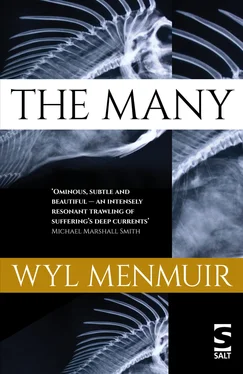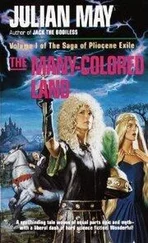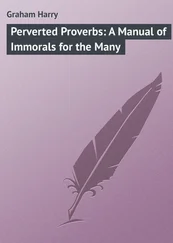Wyl Menmuir - The Many
Здесь есть возможность читать онлайн «Wyl Menmuir - The Many» весь текст электронной книги совершенно бесплатно (целиком полную версию без сокращений). В некоторых случаях можно слушать аудио, скачать через торрент в формате fb2 и присутствует краткое содержание. Год выпуска: 2016, Издательство: Salt, Жанр: Современная проза, на английском языке. Описание произведения, (предисловие) а так же отзывы посетителей доступны на портале библиотеки ЛибКат.
- Название:The Many
- Автор:
- Издательство:Salt
- Жанр:
- Год:2016
- ISBN:нет данных
- Рейтинг книги:4 / 5. Голосов: 1
-
Избранное:Добавить в избранное
- Отзывы:
-
Ваша оценка:
- 80
- 1
- 2
- 3
- 4
- 5
The Many: краткое содержание, описание и аннотация
Предлагаем к чтению аннотацию, описание, краткое содержание или предисловие (зависит от того, что написал сам автор книги «The Many»). Если вы не нашли необходимую информацию о книге — напишите в комментариях, мы постараемся отыскать её.
The Many — читать онлайн бесплатно полную книгу (весь текст) целиком
Ниже представлен текст книги, разбитый по страницам. Система сохранения места последней прочитанной страницы, позволяет с удобством читать онлайн бесплатно книгу «The Many», без необходимости каждый раз заново искать на чём Вы остановились. Поставьте закладку, и сможете в любой момент перейти на страницу, на которой закончили чтение.
Интервал:
Закладка:
‘What’s this about then?’ Timothy asks. ‘A welcome home party for tired fishermen?’
‘Just time to talk is all,’ says Clem. His voice retains the same calm, quiet quality as before and he starts to walk up the beach, pausing only to let Timothy catch up with him. There is a moon behind the thin cover of clouds above and, as they walk through the gathering, Timothy can see a few faces he recognises — Rab, Tomas, Jory, Santo, Tracey, the girl from the café — though as he looks around none of them will meet his eye. Towards the back of the crowd, standing aside from the others, he sees another figure he recognises, that of the woman in grey, who is looking in on the scene, though it seems to Timothy that she is an observer and not part of the mob.
The crowd parts for Timothy and Clem. Timothy wonders whether the gathered men and women are all going to fall in behind them and follow, but they stay where they are, as the two men climb up off the beach.
They walk up through the village, and what light spills out from the houses illuminates Clem’s face. He looks troubled. They walk up past Perran’s and through a gap between two of the houses at the end of the row, and over a stile into a field. A rut around the edge of the field leads them further away from the houses and up onto the beacon and they slow down to pick their way up a path that is littered with loose stones. At one point, Timothy trips and pitches forward, but Clem is close enough to him to stop him falling. He waits while Timothy regains his balance and helps him find his feet again. When they reach the summit, by the stubby white marker stone, Clem comes to a stop and leans heavily on the boat hook, while he gets his breath back. Timothy turns towards Clem and is about to speak, and as he does so Clem swings round towards him and puts a hand square on Timothy’s chest.
The wind is strong at the top of the hill and brings with it a dull roar of white noise, and when Clem talks he has to raise his voice as the wind blows around them and down through the village.
‘We answered your questions as best we can, now it’s time to leave them be,’ he says and turns slightly so his face is now turned back towards the village. ‘It won’t do any good you asking them any more.’
Timothy shrugs and feels Clem’s hand press harder against his chest.
‘Perran’s ours,’ Clem says, and this time he moves closer in, and speaks low and soft into Timothy’s ear. ‘See?’
Clem is so close now he has blocked out the wind that whips around them and Timothy can now hear each breath the other man takes.
‘You’ll not know him. Not here and not ever,’ says Clem, and without moving away he waves the boat hook out over all of the village below. ‘You want me to tell you he stood up here and breathed in the air and looked out on this scene in the morning as the light came up, and as the sun rose over the sea. And at noon when it was hot and there was no shade and in the afternoon when he watched the boats out on the water and thought they were all he needed to see in the world, and later in the evening when the sun set and the sea was ablaze. You want me to tell you he’s buried here, under the marker stone, or down there in the barrows, from where he could keep watch on us. You’ll want me to talk until you know him. Am I wrong?’
Timothy can feel Clem’s breath on the side of his face he is so close now.
‘He’s not,’ Clem continues. ‘Not buried here, nor down in the village, nor out at sea. You’ll not find a headstone, though you might look for one as long as you please. So take your questions and leave them be. Take them away from here. Or, if you stay, stay and keep them to yourself.’
Clem’s arms fall to his side and he takes a couple of steps back then, his job done.
‘Tell me then,’ says Timothy. He cannot help the question rising from some well inside and Clem turns on the spot and swings the boat hook towards him with a speed Timothy does not expect. It hits him square on the chest and knocks him to the ground. Clem is standing over him now, shaking with what Timothy can only assume is anger, with the boat hook raised, covering him so he cannot get back up. Timothy can taste blood in his mouth. After a moment that lasts an age, Clem’s breathing shallows and he moves the boat hook away. As he backs away from Timothy, the moonlight catches his face again. By it, Timothy sees a man twisted in frustration or exasperation. It is not a face that wants to do him harm. There is something paternal in it perhaps and it occurs to Timothy that Clem believes he is doing him a favour.
Clem backs up a few more paces from Timothy, who is lying, still in shock, on the ground. He turns away and then back towards Timothy, and Timothy wonders whether he is going to return the finish the job. He still has the hook in his hand, and he is raising and lowering it as though he is rehearsing a motion in his head that he is unaware is being played out by his body. But eventually he drops, or rather throws, the hook on the ground and walks away from Timothy.
‘Why bring me up here to tell me this then?’ Timothy shouts down after Clem as he walks away down the hillside. ‘Why drag me up a hill to tell me what questions I can and can’t ask?’
But Clem has given up on Timothy now and is walking away. He does not look back, but leaves Timothy on the ground in the dark of the hillside with the wind whipping around his ears, feeling as though he has been sucked out to sea by an unstoppable tide and stranded far away.
Timothy lies on his back and the cold from the wind and from the ground below seeps into his body through his clothes. The blood in his mouth tastes metallic and the question repeats itself as if it is on a loop, quiet and insistent and endless.
18. Timothy
BY THE TIME Timothy arrives back at the house, the wind has dropped and he finds the house in darkness, though from the road he can hear the sound of a door swinging against its frame in the wind. As it comes into view, he can see the front door is open, revealing a darkness darker than that of the night outside. He walks around the side of the house to the door he uses now and sees that too is open. He approaches slowly and when he gets to the doorway, he runs his fingers over the splintered wood where the lock has come away from the doorframe, and walks through into the kitchen. He tries the switches on the wall just inside the door, but the lights will not turn on, and nor will the lights in the hall or the sitting room when he comes to those. There is a sharp chemical smell in the air that thickens the deeper he walks into the house.
He feels the carpet wet underfoot and after cracking his shins on furniture that is lying strewn across the floor, he walks more carefully and stops each time he feels something in his way. A fallen chair, its legs in the air, a bookcase upended, the pages of novels and textbooks soaking up whatever liquid has been poured onto the carpets. He moves like this for several minutes, slowly investigating the house in the darkness. He heads upstairs to look for the torch he knows is in his bag under the bed, but by the time he has found the torch he realises he does not want to see the extent of the damage and he leaves it where it is. In the bedroom, he is aware the bed frame has been pulled out of alignment and there is a pile of his clothes tipped out of drawers onto the mattress, and some of the upstairs windows have been put through. The wind comes cold into the room and through onto the landing. Timothy closes the door of the bedroom, but makes it no further than the doorway to the sitting room, where he slumps against the doorframe and allows himself to slide down to the floor. With his head held in his hands and his knees up around his ears he begins to sob, uncontrollably for some time and then because he allows it to continue. Later, he finds the strength to stand again, though only to make his way across the darkened sitting room to the armchair in the corner of the room, which, he can see by its silhouette, is still standing. He checks it and finds it has escaped being doused in whatever liquid covers the floors. He sits down and, taking off only his shoes, tries to recline the chair, though the mechanism will not work, and he pulls a blanket over himself and tries to push himself as deep into the cushions as possible, to wait for the morning to arrive.
Читать дальшеИнтервал:
Закладка:
Похожие книги на «The Many»
Представляем Вашему вниманию похожие книги на «The Many» списком для выбора. Мы отобрали схожую по названию и смыслу литературу в надежде предоставить читателям больше вариантов отыскать новые, интересные, ещё непрочитанные произведения.
Обсуждение, отзывы о книге «The Many» и просто собственные мнения читателей. Оставьте ваши комментарии, напишите, что Вы думаете о произведении, его смысле или главных героях. Укажите что конкретно понравилось, а что нет, и почему Вы так считаете.











